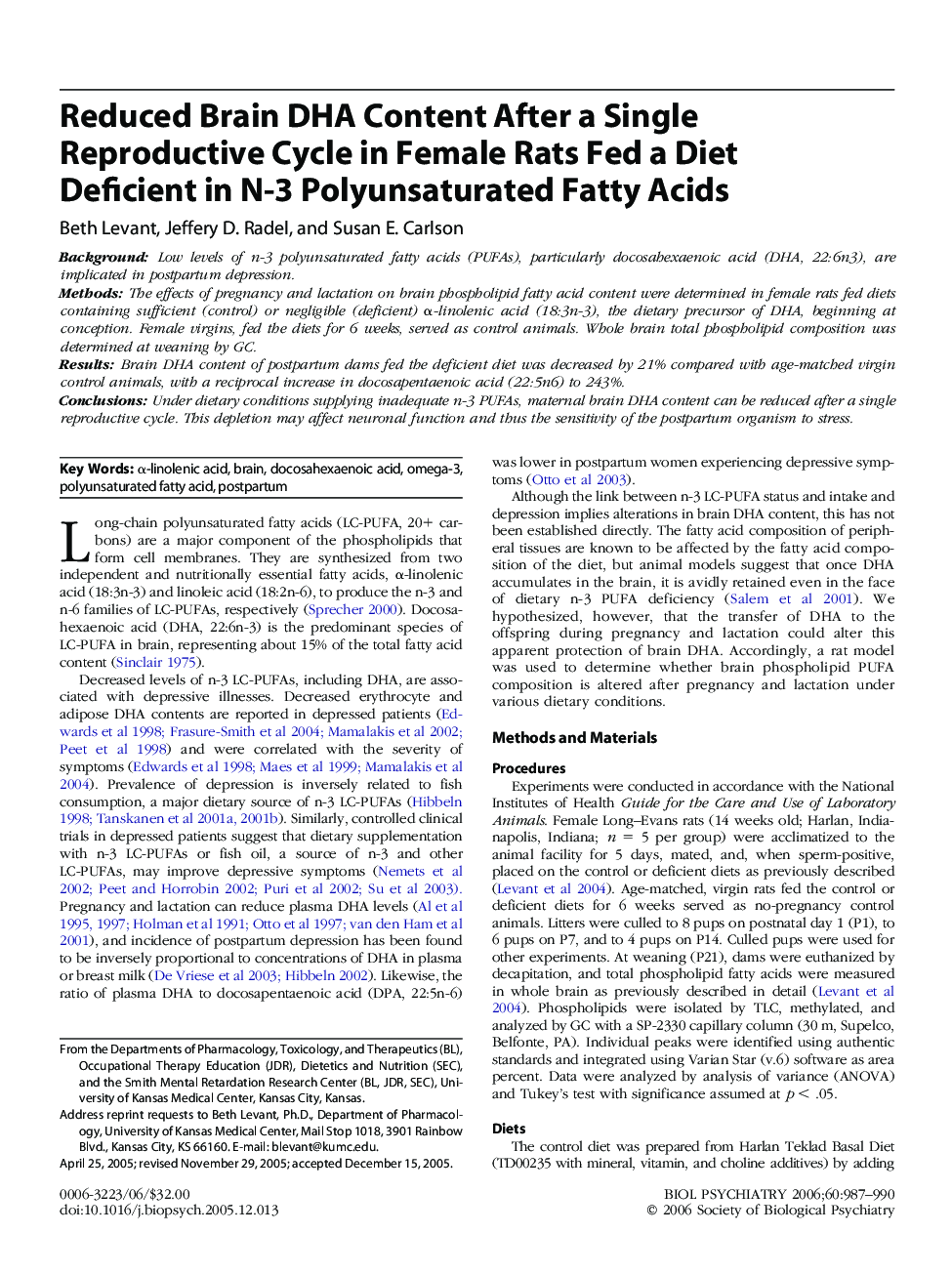| کد مقاله | کد نشریه | سال انتشار | مقاله انگلیسی | نسخه تمام متن |
|---|---|---|---|---|
| 4180519 | 1276607 | 2006 | 4 صفحه PDF | دانلود رایگان |

BackgroundLow levels of n-3 polyunsaturated fatty acids (PUFAs), particularly docosahexaenoic acid (DHA, 22:6n3), are implicated in postpartum depression.MethodsThe effects of pregnancy and lactation on brain phospholipid fatty acid content were determined in female rats fed diets containing sufficient (control) or negligible (deficient) α-linolenic acid (18:3n-3), the dietary precursor of DHA, beginning at conception. Female virgins, fed the diets for 6 weeks, served as control animals. Whole brain total phospholipid composition was determined at weaning by GC.ResultsBrain DHA content of postpartum dams fed the deficient diet was decreased by 21% compared with age-matched virgin control animals, with a reciprocal increase in docosapentaenoic acid (22:5n6) to 243%.ConclusionsUnder dietary conditions supplying inadequate n-3 PUFAs, maternal brain DHA content can be reduced after a single reproductive cycle. This depletion may affect neuronal function and thus the sensitivity of the postpartum organism to stress.
Journal: Biological Psychiatry - Volume 60, Issue 9, 1 November 2006, Pages 987–990